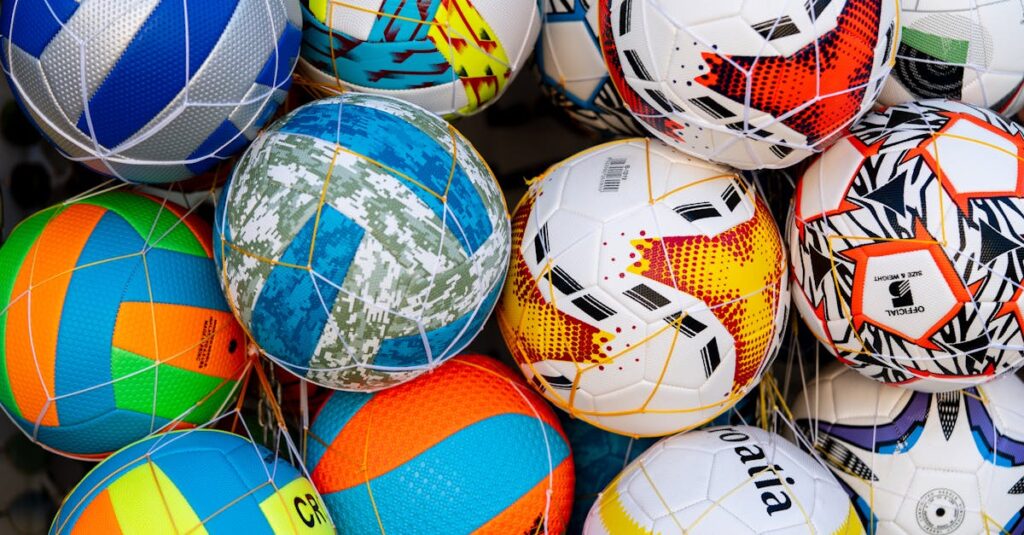In this article, I’ll dive into the current rosters of the Moroccan and Angolan national teams. From seasoned veterans to rising stars, each player contributes to their country’s quest for glory on the international stage. Let’s take a closer look at who’s wearing the colors of Morocco and Angola and how their individual talents come together to create dynamic teams.
Key Takeaways
- Rich Football Histories: Both Morocco and Angola have deep footballing legacies that shape their current national teams, influencing player development and fan culture.
- Key Players’ Impact: Notable players like Hakim Ziyech (Morocco) and Gelson (Angola) play crucial roles in their respective teams, impacting both performance and strategy.
- Diverse Tactical Approaches: Morocco emphasizes quick ball movement and positional play, while Angola opts for direct counter-attacks, showcasing differing offensive strategies.
- Defensive Strengths: Both teams exhibit strong defensive philosophies; Morocco focuses on tactical discipline, whereas Angola balances high pressing and deep blocks.
- Youth and Experience Blend: Each team features a mix of seasoned veterans and emerging talents, creating a dynamic environment conducive to growth and resilience.
- Upcoming Potential: Both squads are gearing up for future competitions, eyeing greater success on the international stage as they develop their squads further.
équipe du maroc de football – équipe d’angola de football : composition
Équipe du Maroc de football boasts a legacy filled with notable achievements and a vibrant footballing culture. The team’s unique identity stems from its passionate fans and a diverse pool of talented players.
Historical Background
I find the history of Équipe du Maroc de football quite fascinating. The team, established in 1956, became Africa’s first representative at the World Cup in 1970. Dominance in African tournaments is evident, as Morocco claimed the African Cup of Nations in 1976. Notable players like Ahmed Faras and Abdeljalil Jaziri contributed to the national team’s proud legacy. This rich history laid a strong foundation for future generations, inspiring countless young athletes across the country.
Recent Performance
The recent performance of Équipe du Maroc de football shows significant promise and improvement. The team qualified for the 2022 FIFA World Cup, marking its return to the prestigious tournament since 1998. Noteworthy players such as Hakim Ziyech and Achraf Hakimi have elevated the team’s play, contributing to a more competitive squad. In the 2021 Africa Cup of Nations, Morocco reached the Round of 16, showcasing its resilience. The team’s current form reflects a strategic blend of youthful energy and experienced leadership, aiming for greater success on the international stage.
Overview of Équipe D’Angola De Football
Équipe d’Angola de football boasts a rich history and a competitive spirit in international football. The team’s dedication and development reflect Angola’s love for the sport.
Historical Background
Established in 1979, the Angolan national football team marked its presence in international football with pride. The squad made its World Cup debut in 2006, showcasing its talents on the global stage. Key figures in Angola’s football history include legends like Lamá and Akwa, who played pivotal roles in securing the team’s African Cup of Nations appearance and achievements. The team’s participation in this prestigious tournament, with its best performance reaching the quarter-finals in 2008, highlights its competitive edge and commitment to growth over the years.
Recent Performance
Recent performances by Équipe d’Angola de football demonstrate a blend of youth and experience, fostering improvement in their international outlook. The team faced challenges in qualifying for major tournaments, yet its adaptability remains evident. Angola finished fourth in the 2020 African Nations Championship, demonstrating resilience and potential. Players like Zini and Gelson are emerging as key contributors, infusing the squad with fresh talent and energy. With upcoming qualifiers on the horizon, the team’s prospects look promising as it aims to solidify its standing in African football.
Key Players in Équipe Du Maroc De Football
The Moroccan national football team boasts a roster filled with talent across all positions. Each player contributes to a strategic playing style that emphasizes both skill and teamwork.
Goalkeepers
Yassine Bounou stands out as a crucial figure in goal. His shot-stopping ability and command of the penalty area enhance Morocco’s defensive stability. Munir Mohand Mohamedi also brings experience, providing a reliable backup option when needed.
Defenders
Achraf Hakimi is a key player in the defense, recognized for his speed and versatility on the right flank. Romain Saïss offers solid leadership and aerial strength in central defense, while Noussair Mazraoui complements Hakimi on the left side, contributing both defensively and offensively. Together, they form a robust backline that effectively thwarts opponents.
Midfielders
Hakim Ziyech serves as a creative catalyst in the midfield, known for his exceptional vision and passing abilities. Sofyan Amrabat enhances the team’s balance with his defensive skills and ability to disrupt opponent attacks. Azzedine Ounahi, a rising talent, adds dynamism and energy, further solidifying Morocco’s midfield presence.
Forwards
Youssef En-Nesyri leads the attacking line, bringing physicality and scoring proficiency. His ability to convert chances makes him a constant threat. Tarik Tissoudali adds flair and creativity, contributing to the team’s offensive strategies. Together, these forwards work in synergy, aiming to break through opposing defenses and secure crucial goals.
Key Players in Équipe D’Angola De Football
The Angolan national football team boasts a blend of established talent and emerging players. Their contributions across different positions are vital to the team’s strategies and performance.
Goalkeepers
Angola’s goalkeeping position features talented players capable of making critical saves. Tony’s experience lends stability to the backline, while the young goalkeeper, Zé Carlos, shows promise with impressive reflexes and agility. Together, they provide a solid foundation for the team’s defensive efforts.
Defenders
The defensive lineup includes key figures known for their robustness and tactical awareness. Ângelo offers leadership and physicality at the center-back position, while the wingbacks, Landu and Rúben, are adept at both defending and launching counterattacks. This combination enhances the team’s resilience, particularly in high-pressure situations.
Midfielders
Angola’s midfield showcases versatility and creativity, essential for controlling the game. The seasoned player, Dede, plays a pivotal role in ball distribution, while Zini adds dynamism with his dribbling and pace. The collaborative efforts of these midfielders help maintain possession and create scoring opportunities.
Forwards
The attacking line features players like Gelson and Mabululu, who combine speed with technical skills to challenge opposing defenses effectively. Gelson’s ability to find space and Mabululu’s finishing skills complement each other, making the duo dangerous in transitions. Their contributions elevate Angola’s attacking prowess and scoring potential.
Comparison of Tactics
In analyzing the tactics of the Moroccan and Angolan national football teams, distinct approaches to both offense and defense emerge, highlighting their strategic philosophies.
Offensive Strategies
Morocco’s offensive strategy emphasizes quick ball movement and positional play. Players like Hakim Ziyech and Youssef En-Nesyri excel in creating scoring opportunities through their agility and technical skills. The team utilizes wing play, with Achraf Hakimi and Noussair Mazraoui providing width and crossing abilities. Their emphasis on combination plays and quick transitions aims to exploit opponent weaknesses efficiently.
Angola employs a more direct approach in its offensive tactics. The team focuses on quick counter-attacks, utilizing the speed of attackers like Gelson and Mabululu. They often rely on midfielders such as Dede to distribute the ball effectively, transitioning from defense to attack rapidly. Angola’s use of set pieces also adds an element of danger, leveraging the height and physicality of its players to create scoring opportunities.
Defensive Approaches
Defensively, Morocco showcases a robust organization, with a focus on tactical discipline. The backline, led by Romain Saïss, emphasizes teamwork and communication. They maintain compactness and quickly transition into a pressing game when possession is lost. The midfield contributes significantly, with Sofyan Amrabat providing cover and disrupting the opposition’s rhythm.
Angola’s defensive approach combines resilience and adaptability. The team balances between a high pressing game and deep defensive blocks, depending on the opponent’s style of play. Players like Ângelo lead by example, ensuring defensive solidity and organization. Additionally, Angola’s wingbacks, such as Landu and Rúben, play dual roles, supporting both defensive duties and offensive build-up, enhancing their overall tactical flexibility.
Passion in African Football
The rivalry between the Moroccan and Angolan national football teams showcases the depth of talent and passion in African football. Each squad brings a unique blend of experience and youth to the pitch, making their matchups thrilling to watch. Morocco’s rich history and tactical finesse contrast with Angola’s resilience and adaptability.
As both teams gear up for future competitions, I’m excited to see how their strategies evolve and how their key players will rise to the occasion. The journey ahead promises to be filled with unforgettable moments and fierce competition, highlighting the vibrant football culture in both nations.




